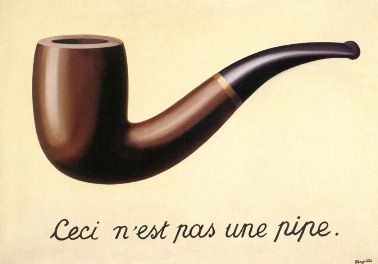
We Are Galaxies
April 20, 2021
There’s nothing quite like the bone-chilling question “So how do you define ‘normal’?” as an opening gambit to a conversation.
It’s even worse when it’s the first question posed during your PhD oral candidacy exam, btw, when you have four sets of eyes boring into your forehead while you sweat under fluorescent lights in a windowless room.

Ask Sara how she knows this.
To be fair, Sara knew her committee was probably going to ask this question, and she had a solid idea of how they wanted her to answer it. The short, non-jargony answer is basically that “normal” doesn’t exist. Normal is a moving target that changes over time, depending on social conventions and attitudes.
BUT.
There’s still something about being faced with such a massive question that can make your brain kind of freeze up. Or go into panicked overdrive.
You might know this feeling from questions like “what do you do?” or “what’s your five-year-plan?” or “what is your purpose in life?” Or maybe from “what even is gender?” or “what does it mean to be a woman?”
We’ve been thinking about all these questions a lot lately. Part of that is because of the Monstrous Women course we’re teaching right now, and part of it is because, well, when you’re a couple of girls who run a pretty unconventional business, people tend to ask you a lot of questions. And as long as the questions aren’t a variation of “who the hell do you think you are?” we’re fine with that! Teaching would be a pretty rough profession if we didn’t actually like answering questions!
But sometimes – a lot of the time, in folklore especially – there just aren’t tidy answers.

So what do you say when someone asks you how to define “normal” or “woman” or “fairy tale” or “crone”? There are, of course, short and long answers we can, and do, give to these questions. It’s part of the job. Behold:
“Normal”: a social construction that shifts over time
“Woman”: a person who says she’s a woman
“Fairy Tale”: a wonder tale, usually characterized by magic and an unreal location
“Crone”: a woman with a great repository of wisdom gained by experience
But the more definitions we teach and write, the more we chafe against them. Definitions help us understand things and pin them down… but they’re also limiting.
Our actual favorite definition of the fairy tale is from Dr. Jennifer Schacker and Dr. Christine Jones. They say:
“The idea of the fairy tale might be better understood as an open-ended, playful way of engaging social and political issues in a form that defies the constraints of realist fiction rather than as a fixed discursive form that corresponds to a set of narrative rules.”
In other words, they define the fairy tale as a story that playfully addresses the world around us through a magical, fantastical lens. Now, you could say that’s way too broad. Arguably, for example, it could include fantasy novels or magical realism or horror or science fiction as well as the fairy tale. But it’s still our favorite. Why? Because it’s all about possibilities, about opening up to what the fairy tale can DO as opposed to strictly defining what it supposedly IS and MUST BE.
What if, instead of trying to pin things down tightly, we believed that everything – and each of us – contains multitudes (as Walt Whitman would say.) That our ideas and concepts and selves are galaxies of meaning?
There is no normal, remember?
Everything that exists is, in reality, a swirling collection of stars and meanings. We try to cage these concepts in words, but words are always woefully imprecise and inadequate.

Checking a series of neat boxes is a lot less interesting than exploring constellations, which, after all, each person may interpret in their own way. Brittany looks at the constellation Cassiopeia and sees a W, which has always given that particular collection of stars a special meaning for her because of her last name. Does anyone else ascribe to this idea? Who knows, but does it matter? Cassiopeia can contain multitudes too.

Today, we ask that you look up at the night sky, just for a moment. Look at, or – if it’s cloudy – just imagine the stars. Think about the hundreds of them just over your head. Think about the billions of them that you will never see or understand, but exist, just the same. Remember that each star is just one small part of a galaxy, of a universe… and that you, too, are a galaxy, a universe.




I’m totally with you, Brittany. Whenever I look up at the stars, I always look for the W. Did you know that the Celts called it Caer Don – Don’s Castle? Don is a mother goddess, ancestor of Math son of Mathonwy and his relatives in the tale from the Mabinogi.
You asked in the email that accompanied this blog post whether we were normal. My answer is – heck no! Why would I want to be? Does ‘Normal’ write stories, believe in magic, or see the underlying metaphors in stories we’ve known since childhood? Why would I want to give that up?
Oh, and finally – if we didn’t all contain worlds, galaxies, universes – how could we write them? Isn’t the most often-repeated advice to writers, ‘write what you know?’
I love and I applaud everything in this post. <3